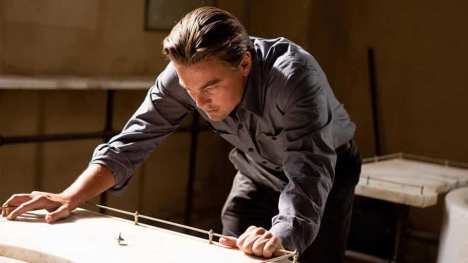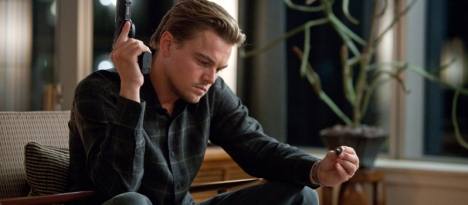This week, the podcast I host, The 250, will be marking its one hundredth episode with a look at Christopher Nolan’s “Inception.” I’m very much looking forward to it. It’ll be available on Saturday from 6pm UTC. I also have a book coming out on Christopher Nolan, titled “Christopher Nolan: A Critical Study of the Films.” This is a much more personal (and much less detailed) discussion of Inception than the one in the book. So, if you like this piece, it might be worth a look.
I’ve always been somewhat wary of Inception.
I mean, Inception is a fantastic movie. There is a reason that it is so beloved and so highly regarded. It is perhaps one of the four core Christopher Nolan films, along with Memento, The Prestige and The Dark Knight. It is the rare big budget blockbuster with no longstanding association to established intellectual property, and one of the few to succeed on that sort of level. Indeed, the only other comparable examples on a similar scale are Interstellar and Dunkirk, both directed by Christopher Nolan.

More than that, Inception has permeated the popular consciousness. It is a film that has become part of the broader conversation. It seems that barely a few months can go by without another hot take on that closing scene, with news coverage of commencement speeches or interviews with actors. More than that, the film itself has become something of a critical and popular shorthand. It is a stock comparison for any movie or television show with a vaguely similar concept. Maniac is the most recent example, even inviting the comparison with an elaborate hallway action scene in its penultimate episode.
And yet, in spite of that, Inception is a movie of which I’ve had a somewhat strained relationship. I still adore it, as I adore most of Nolan’s filmography. I think its reputation is well-earned, and I think it excels by every measure that it sets itself. It delivers on just about every front, showcasing Nolan as a director with incredible command of both the form itself and the audiences watching these films. Inception is a big and broad crowdpleaser that is also a surprisingly intimate and personal film, which works as both a story and as a showcase. It is thrilling, it is engaging, it is compelling.

However, there’s something underneath the surface that makes me feel a little uncomfortable. A large part of this is simply down to the fact that it’s a movie that is fundamentally about movies. This is nothing new of itself. All of Nolan’s movies are about stories, whether personal or cultural. In fact, it could be argued that the central trilogy of Nolan’s work is actually The Prestige, The Dark Knight and Inception, a trilogy of films that seem to be about the challenges of constructing and maintaining spectacle, arriving at a point in the director’s career where Nolan was transitioning from smaller films to high-profile epics.
Inception is the most transparent of these films, exploring most directly the mechanics of how storytelling works within a cinematic framework. There are even scenes of characters discussing in relatively clinical terms the mechanics of catharsis and how best to emotional manipulate their target audience. Inception feels very much like Nolan is stopping and deconstructing his stopwatch storytelling for the benefit of the audience, revealing how the trick is done and how the pieces fit together. As with everything Nolan does, he does this with a great deal of skill and nuance. However, it can’t help but feel a little cynical.

Filed under: On Second Thought | Tagged: capitalism, Christopher Nolan, cinema, corporations, dream space, dreams, films, ideas, imagination, Inception, Leonardo diCaprio, mind, Movies | Leave a comment »



















